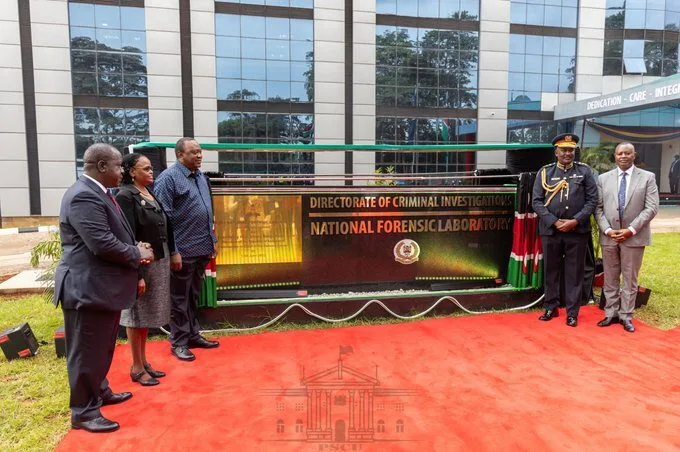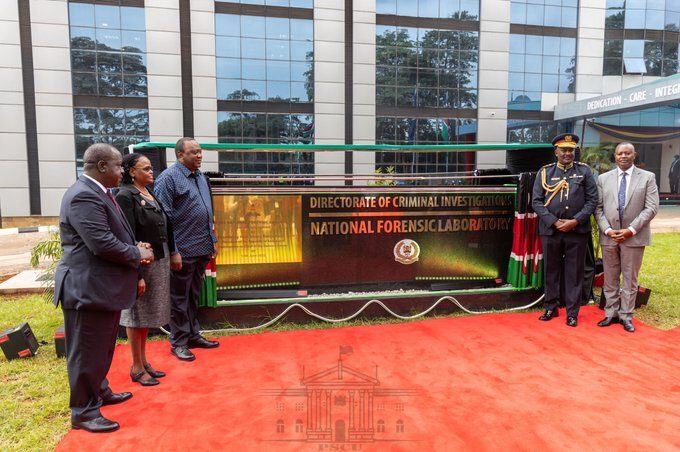President Uhuru Kenyatta yesterday commissioned the DCI national forensic laboratory to strengthen the war against cybercrime that has escalated amid the rapid growth of the country’s digital economy.
Kenyatta said the government will leverage training and increased public engagement to root out emerging security threats like cybercrimes, terrorism, and human trafficking.

“The laboratory will bolster action on cybercrimes and cryptocurrency crimes that have escalated this decade. It will also aid in prosecuting cybercriminals,” said President Kenyatta.
The forensic laboratory, funded by the state to the tune of KSh 4.1 billion ($35m) will also fast-track the probe into serious crimes like murder, robbery with violence, and rape.
Follow us on Twitter at Switch Media TV.
Identified as a flagship security project under Kenya’s Vision 2030 transformation blueprint, the modern laboratory will be conducting forensic analysis of computers and mobile phones besides maintaining an inventory of data.
“Other functions of the laboratory will include analysis of deleted and active digital files, recovery of deleted or encrypted emails, videos, internet sites, and short message service (SMS),” Kenyatta said.
He said the facility will also help uncover passwords, conduct forensic SIM card analysis, extraction of data from mobile phones, and assist in the presentation of expert forensic evidence in court by sleuths.
The digital forensic laboratory, to be domiciled at the state-of-the-art facility, will help identify, seize, acquire and analyze all electronic devices related to cyber-enabled criminal activities reported to police, said Kenyatta.
The Interior Cabinet Secretary Fred Matiang’i said that with the launch of a modern laboratory to aid the war against cybercrimes, the growth of the country’s digital economy would encounter minimal disruptions.
According to Matiang’i, the government will leverage retraining of security personnel, enhanced public-private partnership, and awareness to ease the identification, arrest, and deterring of cyber criminals.
He said the ministries of health, ICT, and internal security will also strengthen collaboration to help detect and thwart cybercrimes that have undermined the digitization of public services.
Chief Justice Martha Koome noted that with the launch of a modern forensic laboratory, will be possible to speed up the prosecution of cybercrime in the country.
However, the launching of the DCI National forensic lab was spearheaded by President Uhuru Kenyatta accompanied by Chief Justice and President of the Supreme Court Martha Koome, DCI boss George Kinoti, and Interior Cabinet Secretary Fred Matiang’i including other government stakeholders.
















